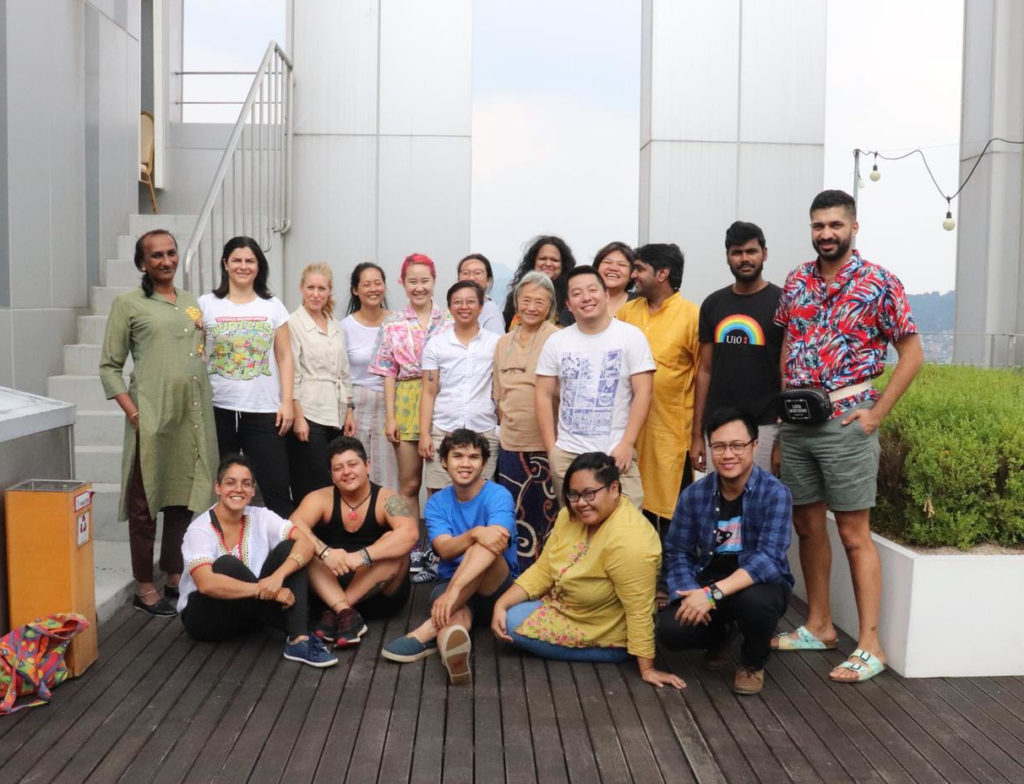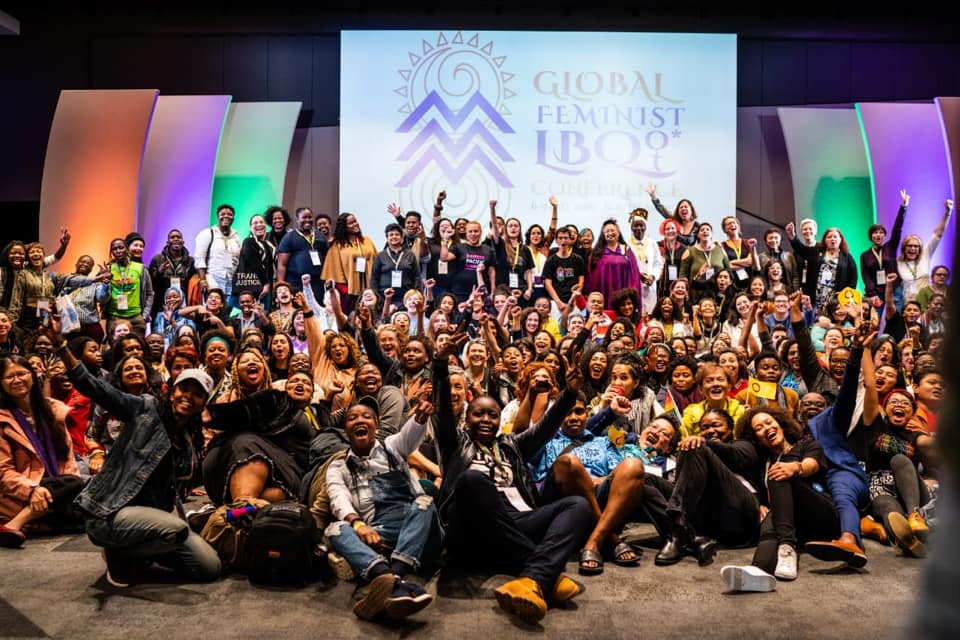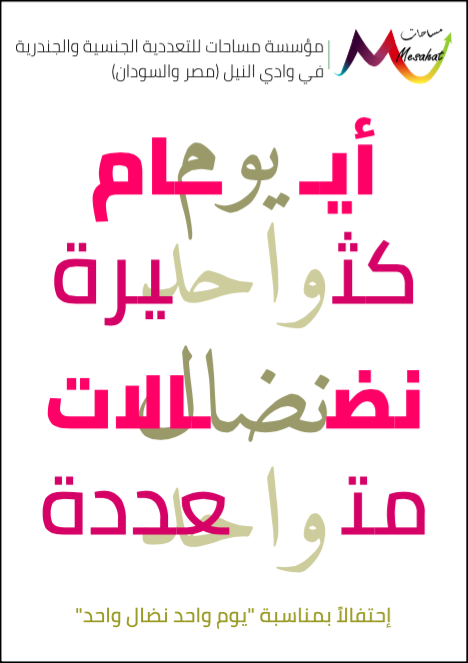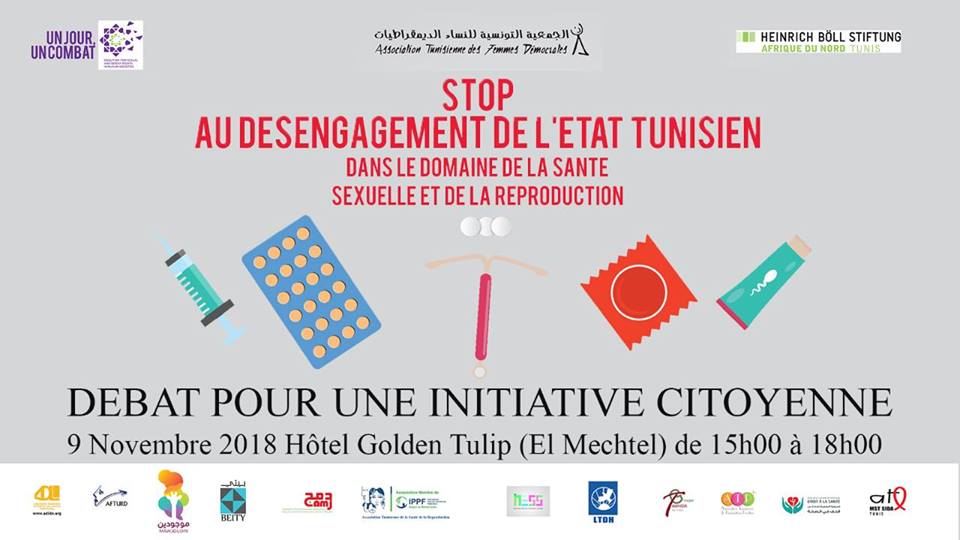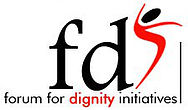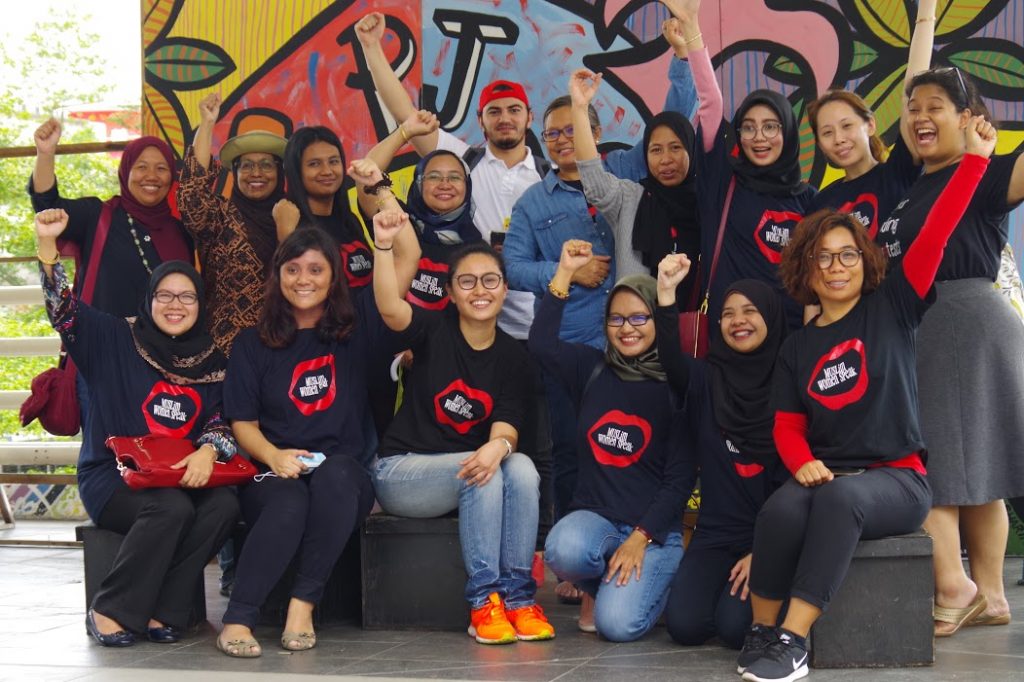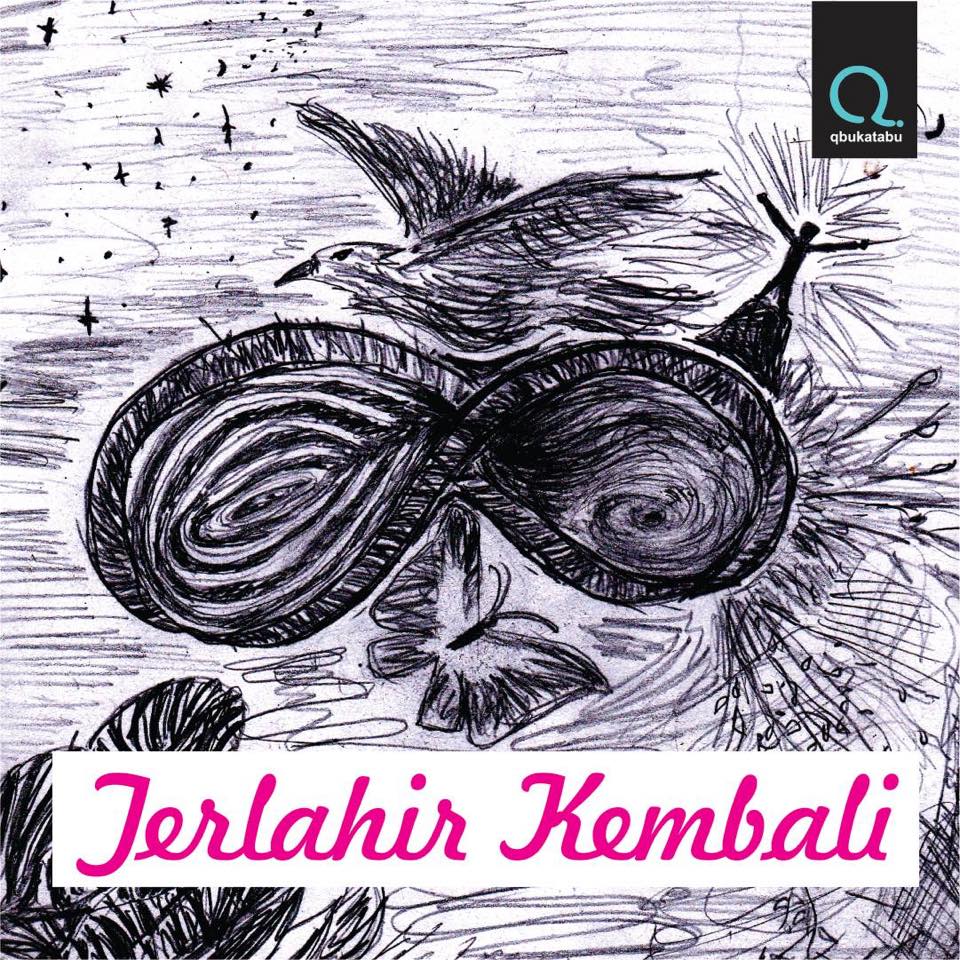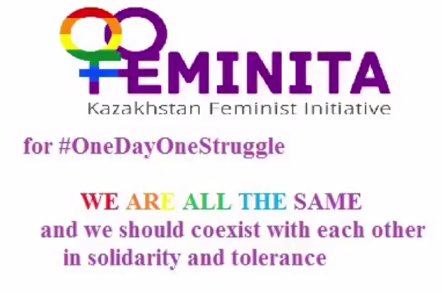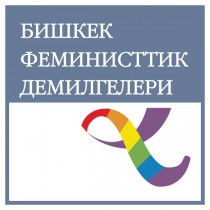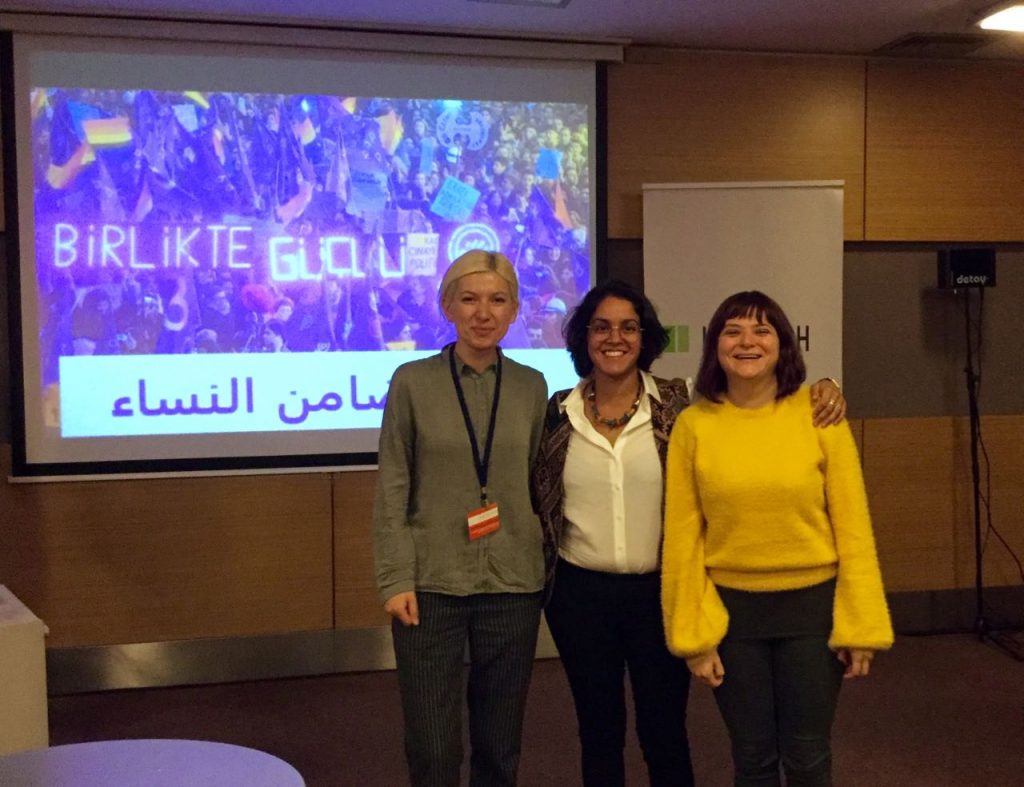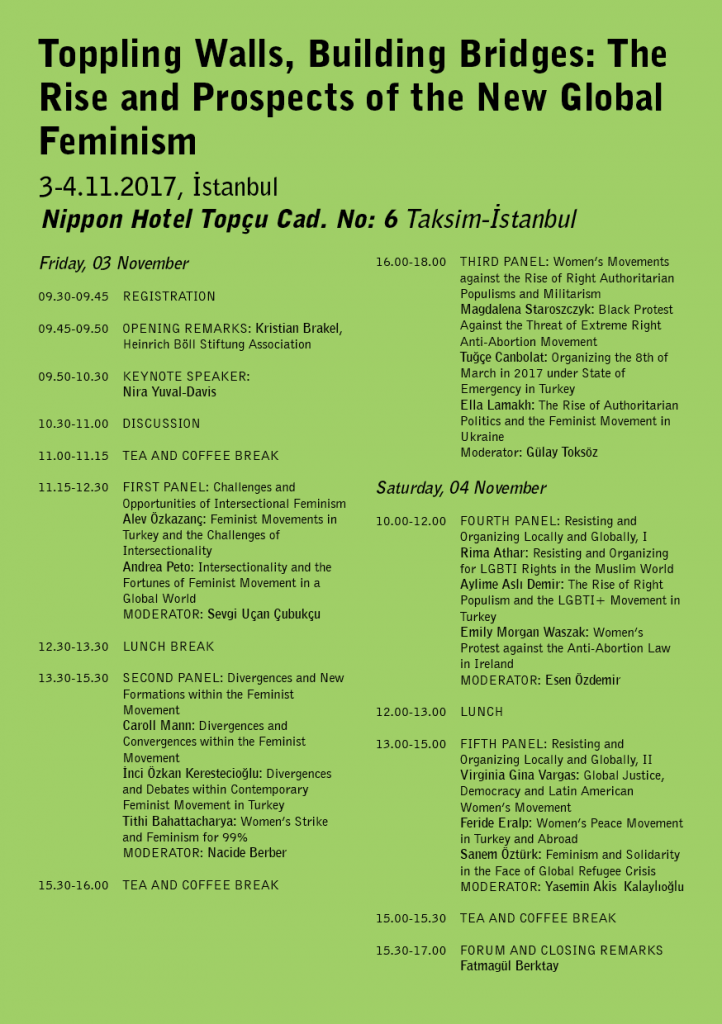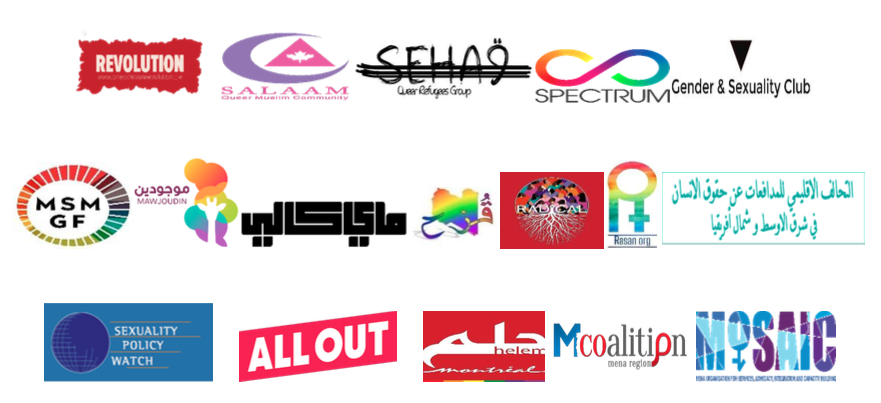CSBR joined 316 organizations and 506 individuals to affirm the right to safe and legal abortion at UN HRC 42. Read the statement below.
JOINT CIVIL SOCIETY STATEMENT
42ND SESSION OF THE UN HUMAN RIGHTS COUNCIL
INTERNATIONAL SAFE ABORTION DAY – 28 SEPTEMBER 2019
Please note that a shorter version of this statement was delivered orally on 23 September 2019 to fit the time requirements of the Human Rights Council.
Thank you, President. I deliver this statement on behalf of 317 organizations[i] and 506 individuals.[ii]
In the Vienna Declaration and Programme of Action, States explicitly agreed to prioritize the realization of women’s human rights and recognized that all human rights are universal, indivisible, interdependent and interrelated. Yet, 26 years later, women and girls’ human rights and bodily autonomy continue to be routinely violated, including through the denial, criminalization and stigmatization of access to safe and legal abortion – all of which is rooted in the discrimination, oppression, violence and coercion affecting the material conditions that shape people’s lives and ability to exercise their bodily autonomy and human rights.
In 1994, Black feminists came together as the Women of African Descent for Reproductive Justice, in reaction to the white supremacy, colonialism and capitalism they observed shaping reproductive politics and inherent in the broader population control narratives. Reproductive justice is centered on the rights to bodily autonomy and self-determination, and to parent and not to parent in safe and healthy environments.[iii] It is rooted in an intersectional analysis and moving beyond an individualistic conception of “choice” to instead place emphasis on the material conditions necessary to exercise reproductive rights. Reproductive justice also addresses the legacy of population control informed by white supremacy and replacement theory, which has resurfaced in current populist politics.
Reproductive justice is achieved when all people are able to enjoy their right to bodily autonomy and sexual and reproductive self-determination. It requires people to enjoy economic, social, and cultural rights and freedoms, and the ability to make and exercise choices not limited by oppression, discrimination, stigma, coercion, violence, lack of opportunities or possible consequences. Treaty bodies and special procedures have echoed this need and recognized that the realization of women’s reproductive rights depends on the material conditions in which they are born, grow, live, work and age, and on power structures and resource distribution at all levels[iv] – in other words, the social and other determinants of health.[v] These include access to housing, safe drinking water, effective sanitation systems, access to justice, and freedom from violence, among other factors, and impact the agency that individuals can exercise with respect to their sexual and reproductive health.[vi] Our discussions on abortion and sexual and reproductive rights cannot continue ignoring these factors.
The realization of reproductive justice, the right to bodily autonomy and substantive equality also requires freedom from control and interference by State and non-State actors, including private companies, donors and multinational corporations, including criminalization of sexual and reproductive behaviors and decisions, restrictive abortion laws, punitive sanctions, and legal restrictions to regulate women’s control over their own bodies.[vii] These laws, policies and practices typically target and disproportionately impact women of color, women from the Global South, women with disabilities, women living in poverty, migrant women, ethnic minorities and indigenous women, women living with HIV, young women and adolescents, sex workers and gender-non-conforming persons based on racial, class, disability and gender stereotypes.[viii]
Today, on 28 September, International Safe Abortion Day, we urge States to respect, protect and fulfill women and girls’ human rights and realize reproductive justice for all. We call on states to:
- Ensure access to available, accessible, acceptable and quality sexual and reproductive health services as part of universal health coverage and public health systems, including modern contraceptive options, comprehensive abortion and post-abortion care, financed adequately through taxation and free from control from other governments, multilateral agreements and transnational corporations.
- Remove all legal and social barriers to safe abortion, including its criminalization, which is broader and including sanctions and no sanction regimes, and commit to providing safe abortion services on request.
- Address social and other determinants of health in law and practice from an intersectional perspective to ensure that they enable all individuals to effectively enjoy their sexual and reproductive rights.[ix]
- Hold private companies and multinational corporations accountable for unethical research practices, violations and abuses of women and girls’ reproductive rights and bodily autonomy.
Prioritize the meaningful participation of local movements, women human rights defenders and feminists demanding accountability for sexual and reproductive health and rights violations, and center their demands and recommendations for the realization of reproductive justice.
[i] SIGNED:
Aakanksha Seva Sadan; Abortion Rights Coalition of Canada; Académicas en Acción Crítica; Action Canada for Sexual Health and Rights; Action pour la Lutte Contre l’Injustice Sociale (ALCIS); ADESPROC Libertad; African Sex Workers Academy (ASWA); African Women Rising; Agenda 2030 Feminista; AIDOS Italian Association for Women in Development; Akahatá; Albania Centre for Population and Development; Alberta Pro-choice Coalition; Alberta Society for the Promotion of Sexual Health; Alianza por la Solidaridad; Alliance for Choice; ALRANZ Abortion Rights Aotearoa; ALTSEAN Burma; Amnesty International; Asia Catalyst; Asia Pacific Alliance for Sexual and Reproductive Health and Rights (APA); Asia Pacific Forum on Women, Law and Development (APWLD); Asia Safe Abortion Partnership; Asian-Pacific Resource and Research Centre for Women (ARROW); Asociación Ciudadana ACCEDER; Asociación Ciudadana ACCEDER; Asociacion Civil Mujeres en Linea; Asociación con la A; Asociación de Clínicas Acreditadas para la IVE, ACAI; Asociacion metropolitana de equipos de salud; Asociación Venezolana para una Educación Sexual Alternativa. AVESA; Associação para o Planeamento da Família, Portugal (APF); Association for Women’s Rights in Development (AWID); Association of War Affected Women; Association Tunisienne des Femmes Démocrates; Australian Women Against Violence Alliance (AWAVA); Austrian Family Planning Association; Avenir Jeune de l’Ouest (AJO); Balay Alternative Legal Advocates for Development in Mindanaw (BALAOD Mindanaw); Belize Family Life Association; Beyond Beijing Committee; Brac School of Public Health; Breakthrough; Bridges-puentes.com; Campaña 28 de Septiembre por la Despenalización Bolivia; Campaña 28 de setiembre “por la despenalización del aborto en América Latina y el Caribe” – Paraguay; Campaña Nacional por el Derecho al Aborto, Legal, Seguro y Gratuito. Argentina; Canadian HIV/AIDS Legal Network; CARAM Asia; Católicas por el Derecho a Decidir (Colombia); Católicas por el Derecho a Decidir (España); CEDES center for the Study of State and Society; Center for Health and Gender Equity (CHANGE); Center for Reproductive Rights; Centre for Independent Journalism (Malaysia); Centre for Sexualities, AIDS and Gender, University of Pretoria; Centre for Women’s Development and Research; Centro de Derechos de Mujeres; Centro de Promoción y Defensa de los Derechos Sexuales y Reproductivos -PROMSEX; Centro integral de Salud Sexual y Reproductivos; Change Action Nepal; CHOICE for Youth and Sexuality; CO Legalife-Ukraine; Coalition Internationale des Femmes Mobiles; Coalition of African Lesbians; Colectiva de Antropólogas Feministas; Colectiva Mujeres Al Derecho; Collectief 8 Maars; Comité de América Latina y El Caribe para la Defensa de los Derechos de las Mujeres; Comité de América Latina y el Caribe para la Defensa de los derechos de las Mujeres – CLADEM Bolivia; Commonhealth; Community and Family Aid Foundation-Ghana; Community Safety and Mediation Center; Community Strength Development Foundation; Consorcio Boliviano de Juventudes – Casa de la Juventud; Corporación Red Somos; Cosmopolitan Affirming Church; CREA; Creación Positiva; Critical Studies in Sexualities and Reproduction, Rhodes University, South Africa; CSBR | Coalition for Sexual and Bodily Rights in Muslim Societies; CWIN Nepal; Deutsche Stiftung Weltbevölkerung DSW; Development Communications Network; Disabled Women Ireland; Domestic Violence Project at the Urban Justice Center; Dziewuchy Berlin; Eastern Caribbean Alliance for Diversity and Equality Inc (ECADE); End FGM European Network; EngenderHealth; Equality Bahamas; Equidad de Género, Ciudadanía, Trabajo y Familia – México; Equipo Jurídico por los Derechos Humanos; E-Romnja Association (The Association for Promoting Roma Women’s Rights); Euroregional Center for Public Initiatives (ECPI); Family Health Options Kenya; Family Planning New Zealand; Family Planning NSW Australia; Federación Feminista Gloria Arenas; Federación Mujeres Jóvenes; Federación Nacional de Asociaciones de Mujeres Separadas y Divorciadas; Federación Planificación Familiar Estatal; Federation for Women and Family Planning; Federation of Reproductive Health Associations, Malaysia; Feminism in India; Feminist Solutions towards Global Justice (FemJust); Femme Forte Uganda; Fondo Lunaria, Colombia; Fondo Semillas; Foro por los Derechos Reproductivos; Forum for Medical Ethics Society, Mumbai, India; Foundation for Innovative Social Development; Foundation for leadership Initiatives; Fundación Angélica Quinta; Fundación Mexicana para la Planeación Familiar, A. C.; Fundación Mujeres en Igualdad; Fundación para Estudio e Investigación de la Mujer; Fundación por una Sociedad Empoderada; Fundamental Human Rights & Rural Development Association (FHRRDA); FUSA Asociación Civil; Gemeinnützige Stiftung Sexualität und Gesundheit (GSSG); GHAROA Assam; Give Hope Uganda; Global Citizen, LLC; Global Fund for Women; Global Health Visions; Global Human Rights Group; Global Justice Center; Global Justice Institute; Global Network of Sex Work Projects (NSWP); Gramin Punarnriman Sansthan; Gramoday Chetna Kendra; Great Lakes Initiative for Human Rights and Development; Groupe Tawhida Ben Cheikh, Recherche et Action pour la Santé des Femmes; Grupo para o Desenvolvimento da Mulhuer e Rapariga (GDMR); Haldimand-Norfolk Pro-Choice Coalition; Health Development Initiative; Herstoire Collective; HPLGBT; Human Rights Project at the Urban Justice Center; Humsafar Bokaro; Humsafar Support Centre for Women; Independent Young People Alliance Foundation; Indigenous Women League Nepal (IWL Nepal); Indonesian Planned Parenthood Association; Iniciativas de Cooperación Internacional para el Desarrollo (ICID); Initiative for Equality and Non Discrimination; Innovations for Development; Instituto de las Mujeres y el Liderazgo en Sinaloa, AC; International Campaign for Women’s Right to Safe Abortion; International Humanist and Ethical Union; International Movement Against All Forms of Discrimination and Racism (IMADR); International Planned Parenthood Federation (IPPF); International Service for Human Rights (ISHR); International Women’s Health Coalition; International Women’s Rights Action Watch Asia Pacific; International Youth Alliance for Family Planning; International Youth Alliance for Family Planning – Mexico; Ipas; Ipas Africa Alliance; Irish Family Planning Association; Jasy Renyhe; Kamana News Publications Pvt. Ltd.; KARAT Coalition, Poland; Katswe Sistahood; Kazimierz Lyszczynski Foundation (Fundacja Kazimierza Łyszczyńskiego); Kenya Sex Workers Alliance (KESWA); Kisumu Sex Workers Alliance; Korea Women’s Association United; L’ Associació Drets Sexuals i Reproductius; Lady Mermaid’s Bureau; LEGABIBO; Leha Self Help Group; Lok Chetana Samiti; LOOM; Mahila Sewak Samaj; MANAVI; Manushya Foundation; MAP (Migrant Assistance Program) Foundation; Marie Stopes International; Marie Stopes International Nepal; MenEngage Alliance; Men’s Association for Gender Equality, Sierra Leone (MAGE SL); Metropolitan Community Churches; Midwifery Society of Nepal; MINBYUN – Lawyers for a Democratic Society; Minority Womyn in Action; Movimiento Nacional por la Salud Sexual y Reproductiva en Colombia; Mugarik Gabe; Mujeres independientes luchando por sus derechos; Mujeres independientes luchando por sus derechos. MI.L.D PLAPERTS. REGIONAL22; Mujeres Liquidambar; Nalane for Reproductive Justice, South Africa; Namibia Diverse Women’s Association; Nari Gunjan; Naripokkho; National Alliance of People’s Movements; National Association for Women’s Action in Development; National Association of Women and the Law / Association Nationale Femmes et Droit; National Collective of Independent Women’s Refuges; National Council of Women New Zealand; National Council of Women Spain; National Organization of Women of Barbados; NCW Hamilton; Net Organisation for Youth Empowerment and Development (NOYED-Ghana); Network for Adolescent and Youth of Africa; New Zealand Nurses Organisation; No More Shame Gibraltar; North American MenEngage Network (NAMEN); Ntethelelo Foundation; Nujeen for Family Democratizing Organization; One in Nine; Oxfam; PA women’s organisation Alga; Pakasipiti Zimbabwe; Pamflet; PaRiter; Peacs Foundation Pakistan; People’s Empowerment Foundation (PEF), Thailand; Physicians for Reproductive Health; Pilipina Legal Resources Center, Inc.; PION Sex Workers’ Right Organization in Norway; Planned Parenthood NL Sexual Health Centre; Planned Parenthood Regina; PLAPERTS REGIONAL; Plataforma Derechos Aquí y Ahora; Population Connection Action Fund; Population Matters; Pro Femina Association; Promoción y Desarrollo de la Mujer – PRODEMU; Promundo-US; Radha Paudel Foundation; Radha Paudel Foundation; Raise Your Voice Saint Lucia Inc; Red de Mujeres Trabajadoras Sexuales (RedTraSex); Red de Salud de las Mujeres Latinoamericanas y del Caribe; Red por los derechos sexuales y reproductivos en México (ddeser); Regional Coalition of Women Human Rights Defenders in MENA; Reproductive Health Network Kenya; Resource Center for Women and Girls; Right Here Right Now-Kenya; Rights for All Women; Rural Women Rights Structure, RWRS; Rutgers; SAHYOGINI; Sakhi for South Asian Women; SAMYAK, Pune; Sensoa; SERAC-Bangladesh; Seres; Sex og Politikk (IPPF Norway); Sex Workers Project at the Urban Justice Center; Sexual and Reproductive Justice Coalition (SRJC); Sexual Health Centre Lunenburg County; Sexual Health Nova Scotia; Sexual Rights Initiative; Shadhika; Shirkat Gah – Women’s Resource Centre; SHORE Centre; Si Jeunesse Savait; Sinergias Alianzas Estratégicas; Sisterhood Network; Smart Seven Women With Disabilities; Social and Development Research and Action Group; Social Uplift Through Rural Action (SUTRA); Societatea de Planificare a Familiei din Moldova / Family Planning Association of Moldova; Society for Feminist Analyses AnA Romania; Society for Sustainable Development; Society for the Improvement of Rural People; Socio Legal Information Centre; Solidarité des Femmes Burundaises pour le bien-être Sociale et le Progrès (SFBSP); Sonke Gender Justice; Space Allies; SPECTRA; Sruti disability rights centre; STAR-STAR – Association for Support of Marginalized Workers; Stowarzyszenie Łódzkie Dziewuchy Dziewuchom; Stretchers Youth Organization; Sukaar welfare organization Pakistan; Support Group and Resource Center on Sexuality Studies; Surkuna; Swabhimaan; Taller Salud; The Community Agenda; The New Zealand Federation for Business and Professional Women Inc.; The Public Health Association of New Zealand; The Weaving House; The YP Foundation; Trust for Indigenous Culture And Health (TICAH); Urban Survivors Union; Uthema Maldives; Vecinas Feministas por la Justicia Sexual y Reproductiva en América Latina; Vikalp (Womens Group); Vishakha; Voluntary Organization for Vulnerable Community Development (VOVCOD); White Ribbon Canada; Woman Health Philippines; Women and Development Unit, University of the West Indies Open Campus; Women and Harm Reduction International Network; Women and Media Collective; Women Enabled International; Women Help Women – Self-Managed Abortion Safe & Supported (SASS); Women’s Resource Center; Women’s Rights Center NGO; Women’s Global Network for Reproductive Rights; Women’s Global Network for Reproductive Rights, Africa; Women’s Human Rights Education Institute; Women’s International League for Peace and Freedom (WILPF); Woodhull Freedom Foundation; Working Women’s Resource Centre; Young Bhutanese Coalition of New York; Youth Advocacy Network (YAN); Youth Association for Development; Youth Coalition for Sexual and Reproductive Rights; Y-Peer Albania; Yuwa; YWCA Auckland as of 24 September, 4PM CET.
[ii] Aaron B. Katz; Aarushi Khanna; Adelaida Garcia Codina; Adriana Pérez; Adrienne M Poulter; Agata Szulia; Agnieszka Itner; Agnieszka Kruszyna; Agustin Ramunni; Aiman Khan; Alankrita Anand; Albu Laura; Alejandra Massolo; Aleksandra; Aleksandra; Aleksandra Cichecka; Aleksandra Makara; Alexandrina Wong; Alice Munala; Alina Adhikari; Aloha Lavina; Amal Hadi; Amar Jesani; Ambika Tandon; Amy Andersen; Amy Bosche; Amy E. Alterman; Amy Goudie; Amy Pearl; Ana María González; Ana Maria Palacios; Ananya Banerjee; Anchita Ghatak; Andal Gopalakrishnan; Angélica Cocomá; Angélica Contreras; Anita Drążkiewicz; Anjana; Ann Pomeroy; Ann Weatherall; Anna; Anna Davies-van Es; Anna Hovhannisyan; Anne Sprinkel; Anubha Rastogi; Anubha Singh; Araszkiewicz; Arifa Shakeel; Arkana Khatoon; Ashish Gupta; Assoc. Professor of Law Margaret Drew; Ayesha; Aylen de Florian; Barbara; Barbara B. Crane; Beatriz Sagrado Roberto; Benjamin Nolan; Benu Maya Gurung; Berit Austveg; Bernice Williams; Bertin; Betty A, Reardon; Bishop Pat Bumgardner; Bourez; Caban-Benavides Monika; Carol Bradford; Carrie Hill; Casey Blake; Casteele Anne-Sophie; Catalina Calderon; Chandnisrinivasan; Charu Chaturvedi; Chelsea Keenan; Christine Ball; Christine Denne; Christopher; Claudia Gómez López; Cleone Campbell; Corrinne Oliver; Cynthia Rothschild; Damary Martínez Porras; Dame Carol Kidu; Daniela Colombo; Daniela Draghici; Danuta; Deb Tuchelt; Devalina; Devika Biswas; Devu Parajuli; Dianne Glenn; Dinah Wouters; Disha Mullick; Dolores Fenoy; Dorinda Wider; Dorothy Agalla; Dr Janet Downs; Dr Jessica Rucell; Dr Judy Whitcombe; Dr RN Srivastava; Dr Rohit K Dasgupta; Dr Tlaleng Mofokeng; Dr. Alka Barua; Dr. Laxmi Tamang; Dr. Rosemary Dzuvichu; Ducarme Camille; Durga Sapkota; Dwiya; Eddie Mhlanga; Edith Bardel; Ekaterine Aghdgomelashvili; Elaine Henry; Elena Sajina; Eleonora; Eliseo Yáñez; Elsa Schvartzman; Elspeth Preddey; Elvis Okotete; Emeline Dupuis; Emmanuel Ndabombi; Erick Monterrosas; Esan; Esmae Emerson; Esther J. Spindler; Eva Camps Olmedo; Eva Herrera; Ewa Dabrowska-Szulc; Ewelina Stanczuk; Farhana Alam; Farida Begum; Faryl Palles; Federica; Felicity Jansonius; Fiona Given; Florencia; Frances Bell; Francesca Pérez; Francoise Mukuku; Gabriel; Brettkelly; Gabriela Luchetti; Gabrielle Bush; Gabrielle Le Roux; Garima Shrivastava; Gertrude Wafula; Gina Dao-McLay; Giorgi Tabagari; Giorgi Tabagari; Giulia Virdis; Glenn C M Oliver; Golden Nachibinga; Gopika Bashi; Graciela Séneca; Hansa Naran; Hassairi Rieunier; Hina; Homendra Sah; Huma Khan; Indiana Jimenez; Iratxe García Pérez; Ireen Dubel; Irena Brorens; Iryna Tyshko; Isaias Creig; Iwona; Iza Desperak; J.F. Dolheguy; Jabulile Mary-Jane Jace Mavuso; Jade Maina; Jamila Sale Mande; Jane Cottingham; Jane George; Janet Wong; Javier Maestre Toscano; Jayanthi Kuru-Utumpala; Jean-Philippe Imbert; Jenine J LeCuyer; Jenna Carswell; Jennifer Harper; Jennifer Harris; Jennifer Swinehart; Jennifer Walter; Jenny Durán; Jerónimo Pereyra; Jesica Miño; Jessica Boulet; Jessica Mercer-Short; Jihan Jacob; Jo Scofield; Jo Shearer; Joanna Drozdzewicz; Joanna Dybich; Joanna Maskell; Joelle Basnight; Johan Maritz; John Amanya; Jose Antonio Bosch Valero; Joseline Velásquez Morales; Joshua Mendelsohn; Josué Rangel; Joy Walpole; Joyce Arthur; Juanita Burnett; Judiac; Judith Pellow; Judith Sutherland; Julia; Julie Dorf; Juliet Manning; Justine van de Beek; K.K. Balakrishnan; Kamal; Kamal Gautam; Kamya Arajab; Kapil Kafle; Karen Anaya Cortez; Karin Verbaken; Karolina; Kassoum Coulibaly; Katarzyna; Katarzyna; Katarzyna Gromadzka; Katarzyna Waniek; Kate; Katherine Acey; Kathryn Carruthers; Kathryn Hopkinson; Kathy Dawson; Kerry Davies; Kimberly Lacroix; Kirsty Bourret; Kirsty Campbell; Kirtana Kumar; Kristeen Johnston; Kristina Stockwood; Krystyna Kacpura; Larissa Arroyo Navarrete; Laura Hernández García Defensora de Derechos Humanos; Laurice Botica; Laxman Belbase; Libby; Libby Grant; Liezl Parajas; Liliana Religa; Lina Tatiana Lozano Ruiz; Linda B.; Linda Hill; Linda Kinniburgh; Lisa Adams; Lisa Lawrence; Lois Hampstead; Lori Sudderth; Lorna Mungur; Lourdes Rocio Bustos; Lucía Candeira; Lucia Melgar; Luciana Mignoli; Lucy Jane Gray; Luziano Agirre; LynetteGrave; Lynne Frith; Madelynn Bovasso; Madhumita Das; Magdalena; Magdalena Dlugosz; Majo Corvalán; Malgorzata Danicka; Mamello Makhele; Mara Martínez Monteagudo; Marcelo; Marevic Parcon; Margaret Coe; Maria Alicia Gutierrez; María Cristina Pacheco Alcalá; Maria Fontenelle; Marian Sanz; Marie Jobin Gélinas; Marina Lini Chein; Marta Szostak; Martha Calveyra; Martha I. Rosenberg; Martina Bloch; Mary Hansel; Mary Perrott; Mary Shearman; Marzena; Matilda González; Matokgo Makutoane; Maxine Boag; Maya Sharma; Melanie M Anderson; Melina; Mercedes Mariscal; Michael Brenndorfer; Mira Fey; Miriam Chao Mshimba; Monifa Adebola; Monika Bujak; Monika Piasek; Morgane Boëdec; Muthoni Ngige; Nabin Kumar Shrestha; Nadine Raymond; Nandini; Nandini Ghosh; Narayani Tripathi; Nasreen Jamal; Natalia Gordon; Nataliia; Nerisha Baldevu; Ngozi Nwosu-Juba; Nibha Kumari; Nick Leslie; Nicole Bourbonnais; Nikki Baldwin; Nila Kelly; Nina Sankari; Nirvana González Rosa; Njukia Muracia; Nkeshi; Noemi Grütter; Oishik Sircar; Olive Uwamariya; Pablo Cabrero; Paige Fulton; Palita; Pampa Mukherjee; Paramita Panjal; Paroma Ray; Paul Van Look; Paula Gallegos; Payal Shah; Petitpas; Petra Bayr; Phelister Abdalla; Pilar; Poison; Powhiri Wharemarama Rika-Heke; Prabhakar; Prabina Bajracharya; Pragya Singh; Prakash; Prameswari Puspa Dewi; Prasanta Bandyopadhyay, MD.; Preet; Preeti Vaghela; Prof. Brian Citro; Prof. Dr. Asha Bajpai; Prof. Mohan Rao; Purna Shrestha; Rabeya Sultana; Rae Julian; Raewyn Stone; Ravi Duggal; Rebecca Fogel; Rebecca Gill; Reinhard; Renuka; Rina Roy; Ritz Lee B. Santos III; Robert; Robin Peterson; Rosa Vania Setowati; Roslyn Hiini; Rukmini Sen; Ryszard; Sahil Tandon; Salonie Muralidhara Hiriyur; Samantha Risdon; Sana Contractor; Sana Durvesh; Sana Sharif; Sanjeev Roy; Saraban Tahura Zaman; Sarah Cason; Sarah Kaddoura; Sarah Wood; Schulz Patricia; Serra Sippel; Shabnam; Shambhavi Saxena; Shamim; Shanta Laxmi Shrestha; Sharanya Sekaram; Sharda; Sharon Orshalimy; Sheba Chhachhi; Shevata Rai Talwar; Shilpa Shroff; Shirin Brown; Shraddha Chickerur; Shweta Ghosh; Silvana Weller; Silvia Cartwright; Silvina; Smriti Lamech; Sofia Alessio Robles; Sofía Díaz Echeverri; Sofía Mora Calvo; Sofia Rojo; Sofía Salinas; Sonam Mittal; Sonya Renata; Srilatha Batliwala; Steve; Stuart Halford; Stuti Tripathi; Sudeep Chaudhuri; Sudha Chauhan; Sue Cathro; Sue Smith; Suhel Bidani; Sunil Shrestha; Surabhi Srivastava; Susan John; Susana García; Suveckshya Shah; Swagata Raha; Swapan Mazumder; Sylwia Grabińska; Tanya Jacobs; Taryn Wahl; Theresa Mulenga; Tim Barnett; Tracy Kovalench; Trifin D.; Tshino Ramaite; Ute Herrmann; Uttara S Subramanian; V.S. Elizabeth; Vanisa Dhiru; Vanya Bailey; Varsha; Venus Sood Guy; Verona Valencia García; Victoria Pedrido; Vijay Kumar Singh; Vinay Kulkarni; Viviana Mazur; Viviane Sebahire Maramuke; Vivien Whyte; Wafa Mudawi Ibrahim Adam; Walter Basnight; Wendy Chavkin; William Nicholas Gomes; Woodi Sprinkel; Ying; Zanele Mabaso; Zenande Mcotsho; Zoë Lawton; Zofia; Zoila Paredes; and 58 anonymous individuals as of 24 September, 4PM CET.
[iii] Ross, Loretta, and Rickie Solinger. 2017. Reproductive Justice: An Introduction. Page 65.
[iv] WHO, About social determinants of health (2017), available at http://www.who.int/social_determinants/sdh_definition/en (last visited Oct. 16, 2017) [hereinafter WHO, About social determinants of health].
[v] See, e.g., CEDAW Committee & CRC Committee, Joint General Recommendation No. 31 & General Comment No. 18: On harmful practices, (2014), paras. 68-9, U.N. Doc. CEDAW/C/GC/31-CRC/C/GC/18 (2014) [hereinafter CEDAW Committee & CRC Committee, Joint Gen. Recommendation No. 31 & Gen. Comment No. 18]. See also CRC Committee, Concluding Observations: Mongolia, para. 51(a), U.N. Doc. CRC/C/MNG/CO/3-4; ESCR Committee, Concluding Observations: Australia, para. 28, U.N. Doc. E/C.12/AUS/CO/4 (2009) and ESCR Committee, General Comment 22 on the right to sexual and reproductive health, paras.7-8.
[vi] ESCR Committee, Concluding Observations: Australia, para. 28, U.N. Doc. E/C.12/AUS/CO/4(2009); WHO, About social determinants of health, supra note 2, see also ESCR Committee, General Comment 22 on the right to sexual and reproductive health, paras. 7-8.
[vii] Report of the Working Group on the issue of discrimination against women in law and in practice, Discrimination against women with regard to health and safety, U.N. Doc A/HRC/32/44, para. 76, available at https://documents-dds-ny.un.org/doc/UNDOC/GEN/G16/072/19/PDF/G1607219.pdf?OpenElement
[viii] See e.g. Report of the Working Group on the issue of discrimination against women in law and in practice, Women Deprived of Liberty, U.N. Doc A/HRC/41/33, 15th May 2019, available at: http://ap.ohchr.org/documents/dpage_e.aspx?si=A/HRC/41/33, paras. 37-38. ESCR Committee, General Comment 22 on the right to sexual and reproductive health, para 30.
[ix] WHO, About social determinants of health, supra note 2.


